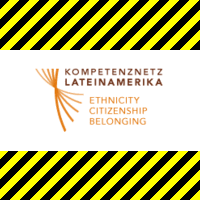Dr. Sarah Albiez-Wieck

Research project
Processes of construction of ‚the Ethnic‘ in Michoacan, Mexico, and Cajamarca, Peru. Translocational positionalities of indigenous migrants under colonial rule.
Employing a comparative perspective, this project investigates two research questions: First, from which point in time onwards is the social categorization of ethnicity reasonably applicable as an analytical category in the precursors of the present nation states Mexico and Peru? Second, which significance did it have in comparison with other social categorisations? The project focuses on the individual strategies of indigenous migrants of changing (tribute) categories in so-called peticiones de cambio de fuero. These petitions to change the jurisdiction reflect the positioning of migrants in the colonial society, which shall be analysed as translocational positionalities (Anthias). Indigenous migrants have not yet been in the spotlight of research, but it is to be expected that they enjoyed a considerable leeway when negotiating social categorisations. Furthermore, the sources that are already available point to an interesting network of relationships with indigenous nobility and people of African descent, which was further differentiated by gender roles.
I seek to determine whether the different legal categorisations of migrants -which were referred to by different terminologies in Mexico and Peru- gave rise to forms of belonging that could be labelled ethnic, or if they led to an erosion of broader ethnic categorisations. The project focuses on developments in the colonial era and is complemented by a short exploration of potentially relevant (dis-)continuities with the previous prehispanic and the subsequent republican era.
The diachronic perspective is supplemented with a synchronic comparison between the regional colonial centres Cajamarca in Northern Peru and Michoacán in West Mexico. Despite their central role, which predates the Spanish colonial empire, Mexico and Peru have scarcely been compared. Especially the analysis of secondary centres promises new findings. The project will put an emphasis on answering the following questions: First, whether potential differences in significance, periodization, and moulding of migration and (ethnic) categorisations can be attributed to continuities with prehispanic times or whether they can be found in a regionally differing articulation of colonial politics by the Spaniards. Second, if the analysed social conditions temporarily outlived the colonial era. The findings promise to bear relevance for current debates regarding the topic of indigeneity.
Methodically, the project focuses on the analysis of peticiones de cambio de fuero and related documents. Since translocational positionalities have not been analysed from a historical perspective, a secondary objective is the (further) development and adaptation of methodological instruments, starting from an innovative combination of elements of network analysis and conceptual history.
Main research focus
Ethnicity, migration, colonialism, indigenous people, social categorisations, belonging, translocality, viceroyalty Peru, New Spain.
Publications
- Albiez-Wieck, S. [vorauss. 2017]. Die Indigenen als Teil der Kolonialgesellschaft, in Dürr, Eveline & Kammler, Henry (Hg.): Einführung in die Ethnologie Mesoamerikas. Münster et.al.: Waxmann-Verlag
- Albiez-Wieck, S. (2016): “Identidades y pertenencias en el Michoacán antiguo antes y después de la conquista”. In: Albiez-Wieck, Sarah; Roskamp, Hans (Hg.): Continuidades y discontinuidades: El Michoacán antiguo desde el surgimiento del Estado tarasco hasta la época colonial, Zamora: El Colegio de Michoacán, S. 121-141.
- Albiez-Wieck, S. (2015): Conceptualizing Ethnicity as a Political Resource. Across Disciplines, Regions, and Periods. Bielefeld: Transcript. Herausgegeben zusammen mit dem UoC Forum Ethnicity as a Political Ressource. Darin: “Introduction: Ethnicity as a political resource across differenthistorical periods.”
- Albiez-Wieck, S. (2013): Stichwort "Mesoamerika" in: Hensel, Silke / Potthast, Barbara (Hg.): Das Lateinamerika Lexikon, Wuppertal: Peter Hammer Verlag.
- Albiez, Wieck, Sarah (2013): Contactos exteriores del Estado tarasco: Influencias desde dentro y fuera de Mesoamérica. Zamora, El Colegio de Michoacán. (Eine frühere Version des Manuskripts ist einsehbar unter: http://hss.ulb.uni-bonn.de/2011/2626/2626.htm; URN: urn:nbn:de:hbz:5-26262).
- Albiez-Wieck, S. (2013): Social categorisations in the Tarascan State: Debates about the existence of Ethnicity in Prehispanic West Mexico, in Célleri, Daniela, Schwarz, Tobias & Wittger, Bea (Hg.): Interdependencies of social categorizations. Frankfurt a.M.; Madrid: Vervuert; Iberoamericana. (Ethnicity, Citizenship and Belonging in Latin America, 2)
- Albiez-Wieck, S.; Castro, Nelly; Jüssen, Lara; Youkhana, Eva (ed.) (2011): "Etnicidad, ciudadanía y pertenencia: prácticas, teoría y dimensiones espaciales. / Ethnicity, Citizenship and Belonging: Practices, Theory and Spacial Dimensions", Iberoamericana/Veruert, Frankfurt a. M.
- Albiez, S. (2009): Die “Breve relación” des Pedro Ponce de León. Ein unbekannter Autor und sein Bericht über religiöse Praktiken in Zentralmexiko, Bonn (BAS / Shaker Verlag).
- Albiez, S. (2009): „Außenbeziehungen der Tarasken“, in: AmerIndian Research, Jg. 4/3, Nr. 13.
- Albiez, S.: Verschiedene Länderberichte (Mexiko und Kolumbien) und Rezensionen in Matices. Zeitschrift zu Lateinamerika, Spanien und Portugal, Nr. 51 (2006) – 61 (2009)
- Albiez, S.; Kauppert, P.; Müller, S. (Hg.) (2007): China und Lateinamerika: Ein transpazifischer Brückenschlag, Berlin (WVB).
- Albiez, S.; Kauppert, P. (2007): „Die Beziehungen zwischen China und Lateinamerika von den Anfängen bis zur Gegenwart: Ein transpazifischer Brückenschlag“, in: Albiez, Sarah / Kauppert, Philipp / Müller, Sophie (Hg.): China und Lateinamerika: Ein transpazifischer Brückenschlag, Berlin (WVB).
- Albiez, S.; Kauppert, P. (Ed.) (2007): Themenschwerpunkt „China und Lateinamerika“, in: Hispanorama, Nr. 117, August 2007.
